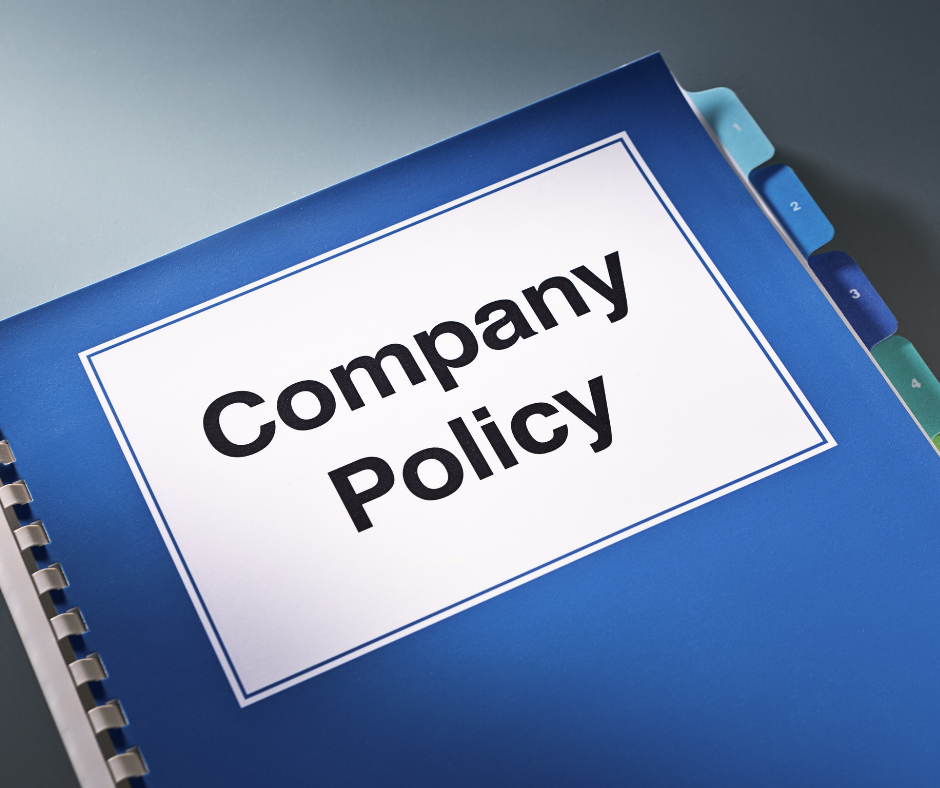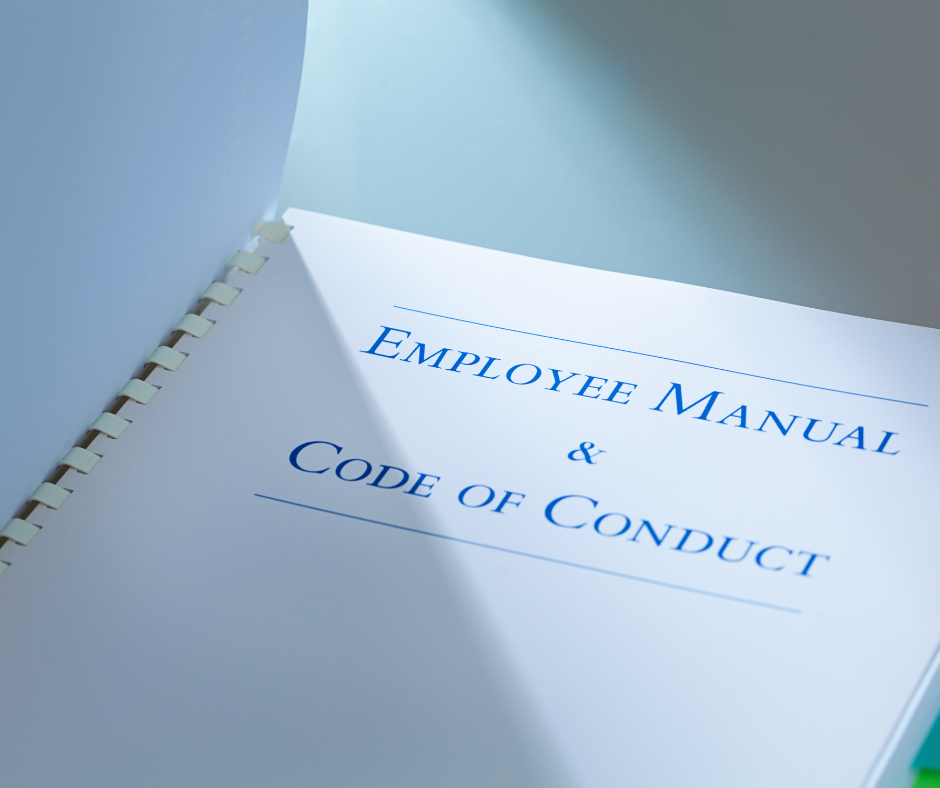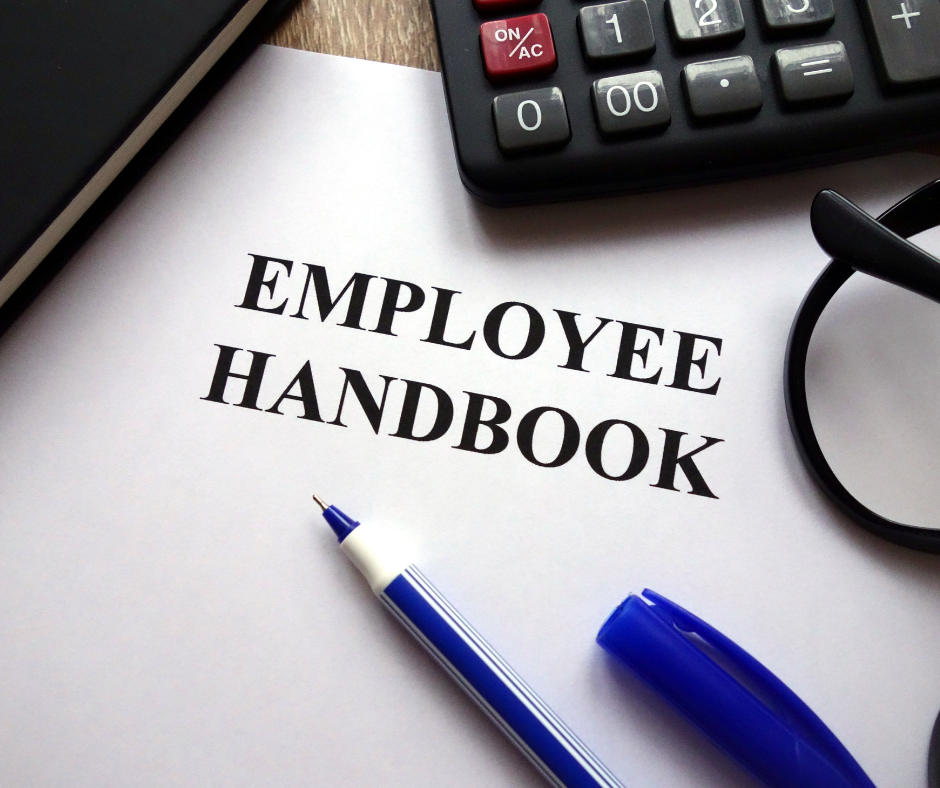
Key Takeaway:
- Employee handbooks provide essential guidance and structure for companies in the leisure and hospitality industry, including Food Services and Drinking Places: In a fast-paced industry with high turnover, employee handbooks help establish company expectations, policies, and procedures, ensuring a consistent and compliant work environment.
- Effective employee handbooks address key components: Key components include company mission and values, attendance and punctuality, anti-discrimination and harassment policies, and time-off policies and procedures. These critical components establish standards and expectations for company culture, employee behavior, and workplace equity. Check out this guide for employee handbooks for manufacturing companies.
- Communication and implementation are key to successful employee handbook management: Employers should employ effective training and onboarding practices, provide frequent updates and revisions, and establish clear processes for handling employee feedback and complaints. Providing clear communication and guidance can motivate and engage employees, creating a positive and productive work environment.
(Link: Employee Handbooks For Leisure And Hospitality)
Are you unsure of the regulations for Food Services and Drinking Places companies? This blog will outline the essential components of an effective employee handbook, helping you ensure a safe and compliant workplace.

Importance of Employee Handbooks in Food Services and Drinking Places Companies
Employee Handbooks for Food Services and Drinking Places Companies are vital for the efficient functioning and optimal performance of such businesses. These manuals serve as a detailed guidebook for employees to understand their roles, responsibilities, and the company culture. They also provide critical information on employee benefits, workplace safety, and code of conduct. Incorporating Employee Handbooks for Food and Beverage Stores companies ensures that employees are aware of their job requirements and are held accountable for their actions. Employees can refer to these manuals as a reference point to answer any questions, reducing the need for constant supervision and guidance. Moreover, these handbooks provide legal protection to both employer and employee. The policies and procedures written in the handbook help ensure that the company complies with state and federal laws. In the instance of any legal disputes, the handbook can serve as evidence to support the defense team defending the interests of the company.
An example of the significance of Employee Handbooks comes from the landmark case of Woolworths Ltd vs Russo. The Australian Company Woolworths was accused of illegally firing an employee without prior notice and fair warning. The court ruled in favor of the employee, as Woolworths was unable to provide evidence that they had, in fact, communicated with the employee about inappropriate behavior. This case emphasizes the importance of an Employee Handbook, which highlights the company’s expectations and holds employees accountable.

Key Components of an Effective Employee Handbook
You require an effective employee handbook to guarantee your employees are informed and have the necessary knowledge and guidelines. To accomplish this goal, there are key components which must be included. These are:
- Company values and mission statement,
- Attendance and punctuality policies,
- Anti-discrimination and harassment policies,
- Time-off policies and procedures.
Including these sub-sections will help you create strong communication, values, and policies with your employees.
Company Values and Mission Statement
Crafting a strong foundation for organizational culture is crucial in delivering quality service, productivity and maintain employee’s motivation. The amalgamation of a company’s values and the mission statement serves as a cornerstone in effective Employee Handbooks for Food Services and Drinking Places.
Having stated the establishment of organizational culture, let us understand how company values make an imprint on the employees. A semantic variation of ‘Company Values and Mission Statement’ encourage organizations to document not just their written company values but also their deeply ingrained behavioral norms that drive them towards success. Company Visionaries understand that promoting ethical principles guide their employees in decision-making, improving employee morale and productivity.
Aligning and communicating this ethos serves as a code of conduct which must reflect employee incentives such as career growth or flexibility. This language ought to be clear, free from ambiguity to avoid any complexities, misunderstanding or conflicts among individuals with varying perspectives.
When David began his successful Bistro franchise nationwide, his top priority was defining a clear distinction between his company’s core value of respect and its standards for decorum towards the customers. He understood that without having components like these effectively communicated through Employee Handbook, he would end up with irreparable damages before even starting climbing the ladder of success. Being fashionably late is only acceptable in the runway, not in the workplace.
Policies on Attendance and Punctuality
Effective employee handbooks for food and drink companies should contain detailed policies regarding how attendance and punctuality are managed. The attendance policy must define what constitutes a valid reason for absence, the proper way of reporting absence, and the consequences of leaving work without prior authorization or notice. Meanwhile, the punctuality policy should highlight how many minutes employees are allowed to be late before it’s considered tardy, the appropriate way of calling in advance to inform about an expected delay, and the consequences of being habitually late.
It’s crucial that each employee understands these policies to prevent work disruptions and maintain productivity. Managers need to handle attendance records carefully, including identifying who called in sick earlier or was late. Consistently reinforcing these policies may help develop a culture where employees maximize their work day while cultivating reliability skills.
Pro-Tip: Develop a system in which employees are notified that they’ve incurred enough absences or have been penalized for chronic tardiness. Accountability encourages them to manage their time effectively. No discrimination means no discrimination, even if the customer insists that the waiter gives them extra spicy service.
Anti-Discrimination and Harassment Policies
Preventing workplace discrimination and harassment is a crucial part of any business. Companies within the food and beverage industry must prioritize developing policies and procedures that create a safe working environment, free from bias or harassment. Creating an environment where employees feel comfortable reporting potential discrimination or harassment is vital for building trust and fostering a positive workplace culture. The best sample employee handbooks emphasize on establishing clear consequences for any employee who engages in discriminatory behavior, serving as a strong deterrent. Anchor: Hospital Employee Handbooks
Anti-discrimination and harassment policies should outline prohibited forms of discrimination, such as race, gender, religion, sexual orientation, age, and disability. Companies should also define what constitutes acceptable behavior in the workplace to ensure that all employees understand expectations.
In addition to formalizing these policies in hospital employee handbooks, it is advisable to provide regular training sessions for all staff members to foster understanding about company policies surrounding discriminatory behavior as well as creating awareness for why it matters.
A recent example of how companies can take more explicit anti-harassment measures includes the Workplace Harassment Prevention Act signed into law by New York Governor Andrew Cuomo in 2018 which mandates all companies provide annual Anti-Harassment Training for their employees. Getting time off is like finding a unicorn in the kitchen of a food service company – rare and magical, but also a bit messy.
Time-Off Policies and Procedures
This section outlines the guidelines and policies for requesting and taking time off. Employees must follow the Time-Off Policies to ensure efficient scheduling and availability. The guidelines provide information about requesting leave, scheduling, vacation accruals, and sick leave eligibility. The policies also include procedures for submitting requests, such as fast notices, how time-off affects paychecks and performance evaluation criteria. The employer will inform employees about how their requests are reviewed, approved or denied. Requesting time-off has to be done in a way that adheres to Employee Handbooks for Restaurants, Bars & Hospitality: Key Considerations to avoid inconvenience among colleagues. It is essential to plan out time off well in advance to minimize confusion or issues related to staffing. It is also important to inquire about any additional regulations specific to food services when seeking time-off during peak times like holidays or busy seasons. For more information, check out these helpful employee handbooks for miscellaneous store retailers companies. Pro Tip: Encourage staff to plan significant events early on in the year with managers’ input by implementing a rolling request schedule or other organizational tools that help guarantee smooth transitions when requesting time off.
Effective communication is key, unless you’re trying to reach your employees through their employee handbook, in which case, good luck.

Effective Communication and Implementation of Employee Handbooks
Prioritize the following actions for ‘Effective Communication and Implementation of Employee Handbooks’ for Food Services and Drinking Places companies. These actions are:
- The Importance of Training and Onboarding
- Frequent Updates and Revisions
- Handling Employee Feedback and Complaints
This will ensure effective communication and implementation of employee handbooks.
The Importance of Training and Onboarding
Effective Onboarding and Skill Enhancement for New Hires New employees need to be effectively onboarded and trained for the smooth functioning of any industry. It ensures that they understand their roles, responsibilities, company policies, and expectations. Along with training them on job-specific tasks and skills, it is important to familiarize them with the company culture, values and goals. A well-planned onboarding process can also lead to higher retention rates and employee satisfaction. For example, employee handbooks for beverage and tobacco product manufacturing companies can serve as a valuable resource for new employees to understand company policies and culture. Provide Accessible Training Materials It is imperative to provide new hires with access to well-structured training materials that are easily accessible at any time. For companies in the food services and drinking places industry, having proper employee handbooks is crucial. These materials can be in the form of PDFs or online videos that include rules, regulations, and best practices followed by the organization. Multi-lingual support might make the resources more inclusive. Assign a Mentor or Buddy Pairing a new employee with someone who has been with the organization for some time can assist with browsing common problems or questions that may arise during the onboarding process. This provides an opportunity to ask questions freely, understand work processes better, learn from experience from another employee without taking away too much of management’s commitment. Check out some templates for employee handbooks for general merchandise stores companies to streamline the onboarding process. Organize Workshops Workshops conducted by experienced employees within the team which focus on developing general communication abilities of newly hired personnel help create approaches that would provide your customers with exceptional customer service, develop people management strategies in collaboration with other team members etc., improving overall performance of team members irrespective of whether they have prior experience. Updating an employee handbook is like trying to catch a greased pig: it’s always slipping out of your hands.
Frequent Updates and Revisions
Company Policies and Protocols are constantly evolving, warranting continuous revision. Employee Handbooks must incorporate these changes regularly to ensure they remain relevant and enforceable. Apart from updates on job descriptions and benefits, eHandbooks for Food Services and Drinking Places companies should also include revised safety guidelines. Also, all employees need to be informed of any new rules or regulations in a timely manner. Thus, distributing a revised copy of the employee handbook for personal and laundry services companies to all current workers while providing access to archived versions is vital for effective communication. It is suggested that companies document policy review dates to keep track of their revisions. This ensures consistency with federal, state, local regulations throughout their development accordingly. Providing employees with an appropriate forum to provide feedback and suggestions will improve employee relations as well. Finally, assigning an individual or team responsible for updates guarantees current information remains available whenever needed by staff members. Moreover, it guarantees compliance with legal requirements while demonstrating commitment to upholding standards in daily operations.
Handling Employee Feedback and Complaints
Providing a platform for employee feedback and complaints is crucial for efficient communication in Food Services and Drinking Places companies. Encouraging employees to voice their opinions without fear encourages open communication, fosters a positive work culture that can increase productivity levels. Offering continuous training sessions to managers and HR personnel can enhance their interpersonal skills and overall employee satisfaction.
The effective handling of employee feedback and complaints is vital in fostering a smooth work environment. Improperly handled grievances can affect team morale, leading to decreased productivity levels. Embedding an escalation process into the company’s policies can provide a formal approach for dealing with sensitive issues. Further, promoting anonymous feedback methods like suggestion boxes or anonymous hotlines can encourage employees to share their views more openly. It is imperative to remember that every grievance requires transparent communication regardless of how insignificant it may seem initially. Regularly reviewing the company’s Human Resources code of conduct not only reaffirms its commitment to fair treatment but also helps identify any gaps in employee procedures. Engaging with disgruntled staff members shows that the management cares about all employees’ well-being and promotes a healthy workplace ecosystem. Employees are more likely to stick around when they feel valued by the company’s management or HR team. Failure to respond appropriately can lead to disengagement, attrition rates, reduced productivity levels, etc. Constant reassurance on issues raised will create a trusting relationship between the managerial teams and staff members while motivating them toward professional excellence.
Five Facts About Employee Handbooks for Food Services and Drinking Places Companies:
- Employee handbooks for food services and drinking places companies typically cover policies related to food safety and sanitation. (Source: National Restaurant Association)
- These handbooks also often include guidelines for acceptable attire and hygiene standards for employees. (Source: Chron)
- Employee handbooks may outline protocols for handling customer complaints and how to address issues with co-workers or managers. (Source: Connecteam)
- Many handbooks for food services and drinking places companies also address topics like scheduling, time-off policies, and wage and hour regulations. (Source: Society for Human Resource Management)
- Employee handbooks serve as a vital tool for creating a unified, consistent workplace culture and preventing misunderstandings or conflicts between employees and management. (Source: Business.com)
FAQs about Employee Handbooks For Food Services And Drinking Places Companies
What should be included in employee handbooks for Food Services and Drinking Places companies?
Employee handbooks for food service and drinking place companies should include information about the company’s policies, procedures, and expectations, as well as any state and federal laws that employees should be aware of. This may include policies related to workplace safety, harassment and discrimination, attendance and punctuality, dress code, and social media use.
How can employee handbooks for Food Services and Drinking Places companies be useful to both employers and employees?
Employee handbooks for food service and drinking place companies can be useful to both employers and employees, as they provide a clear and consistent framework for workplace expectations. The handbook can help employers communicate their policies and expectations in a standardized format, which can reduce confusion and misunderstandings among employees. For employees, the handbook serves as a resource that outlines the policies, procedures, and benefits that they are entitled to.
Can employee handbooks for Food Services and Drinking Places companies be updated and amended?
Yes. Employee handbooks for food service and drinking place companies can be updated and amended as needed. Employers may choose to revise their policies or procedures to reflect changes in the law, industry standards, or internal company policies. When updating the employee handbook, it’s important to communicate any changes to employees and ensure that they review and acknowledge the revised policies.
What are some common mistakes that businesses make when creating employee handbooks for Food Services and Drinking Places companies?
Some common mistakes that businesses make when creating employee handbooks for food service and drinking place companies include using generic or outdated policies, failing to address certain legal requirements or risks specific to the industry, and creating policies that are too strict or inflexible. It’s important to tailor the employee handbook to the needs of the business and its employees and to ensure that the policies are clear, concise, and easy to understand.
How can businesses ensure that their employee handbooks comply with state and federal laws?
Businesses can ensure that their employee handbooks comply with state and federal laws by keeping up-to-date with any changes in legislation, consulting with legal counsel to ensure that their policies and procedures are compliant, and reviewing and revising the handbook on a regular basis to ensure that it is up-to-date and accurate.
Is it mandatory for businesses in the Food Services and Drinking Places industry to have employee handbooks?
No. It is not mandatory for businesses in the food services and drinking places industry to have employee handbooks. However, having a clear and concise employee handbook can be beneficial for both employers and employees, as it provides a framework for workplace expectations and establishes a baseline for workplace conduct.